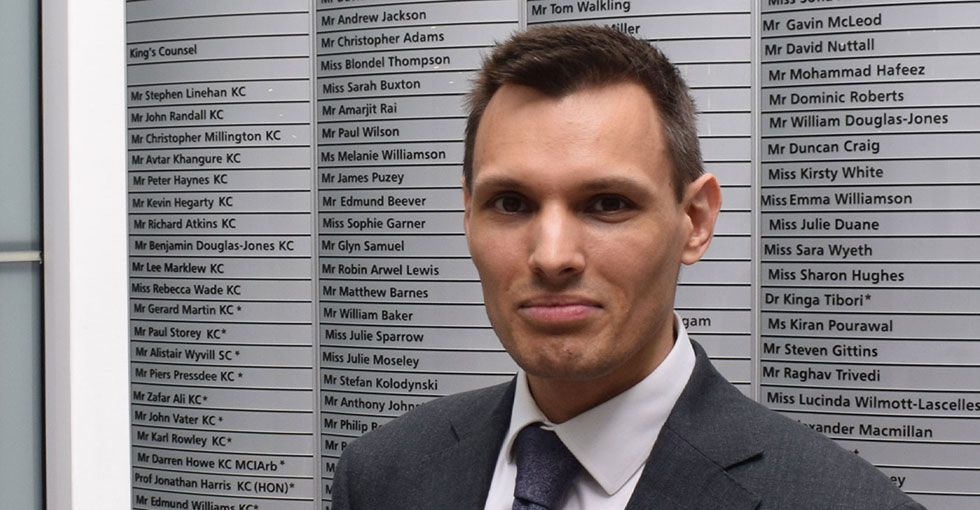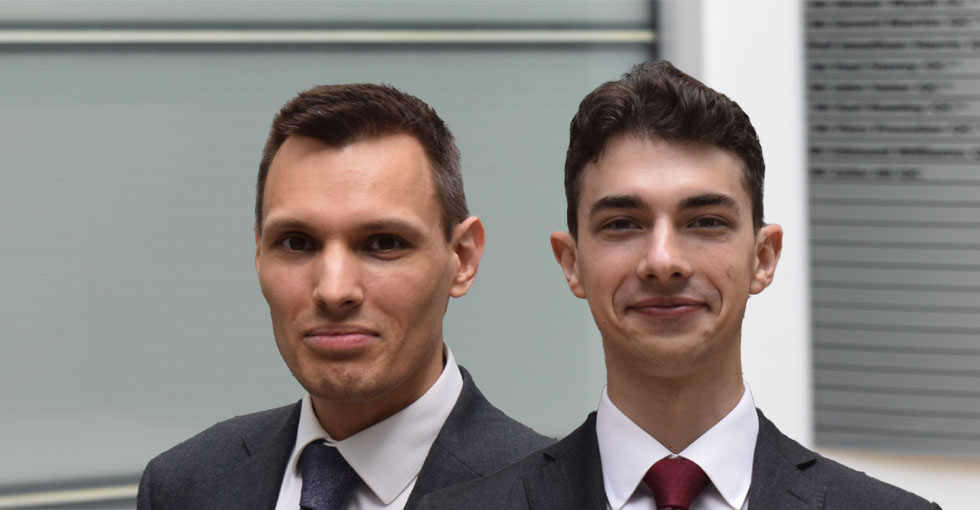In the second of a series of updates, Dan Jacklin has compiled an update on Personal Injury and Clinical Negligence cases which have been in the courts this year.
PERSONAL INJURY
Edwards and Ors v 2 Sisters Food Group Limited [2025] EWHC 1312 (KB)
Summary judgment / Covid-19 exposure / employer’s liability
Sir Peter Lane heard an appeal against an order of HHJ Owen who gave summary judgment for the respondent pursuant to CPR 24.2.
The appellants worked in close proximity on a food production line in Anglesey. It was not disputed that 217 of the respondent’s 560 staff contracted Covid-19 around the time the factory was shut at the direction of Public Health Wales on 18 June 2020.
Permission to appeal was granted on three grounds, summarised briefly as follows: (1) failure to fully take into account that it was premature for the appellants to obtain expert evidence, (2) failed to have sufficient regard to the causation evidence, (3) it was unjust to criticise the appellants for not making an application for pre-action disclosure and not instructing an expert to opine on the evidence whilst also saying that the claim must be dealt with at proportionate cost.
Sir Peter Lane found that the case could be established on ordinary but for principles and there was no need to resort to the Fairchild authorities. He found that the judge fell into error in conducting a mini-trial without the benefit of evidence which would have been available had the trial proceeded.
He said that whilst the broad contours of the Covid-19 pandemic are generally known, what is potentially relevant is how it impacted specific persons in a specific place at a specific time. Sir Peter Lane rejected that expert evidence should have been sought pre-issue, saying it was reasonable to wait until all the evidence on which they expert would need to opine became available. The appeal was allowed.
Archer v (1) R ‘N’ F Catering Limited (2) Riverstone Insurance (Malta) SE [2025] EWHC 1342 (KB)
Breach of conditions precedent / insurance coverage / gastroenteritis claim
On 5 July 2022, Ms Archer issued a claim against the first defendant seeking damages for personal injury for a gastrointestinal illness she alleges she contracted from a meal consumed at the first defendant’s restaurant on 26 July 2019.
The first defendant held a restaurant insurance package with the second defendant, who is the successor in title of the original insurer. On 14 February 2023, the first defendant entered voluntary liquidation and played no further part in the proceedings. Consequently, the second defendant was added to the proceedings on 9 July 2024.
HHJ Kelly heard a preliminary issue as to whether the second defendant could prove that the first defendant was not entitled to rely on an indemnity under the policy. Whether there was a breach turned on whether four conditions precedent had been broken, summarised as follows: (1) notification must be as soon as reasonably possible, (2) full details/evidence and information must be provided within 30 days, (3) must take all reasonable precautions to prevent or diminish loss, (4) must provide all help and assistance and cooperation.
The learned judge found that the first defendant did not notify the second defendant of the “circumstance” until 17 November 2020. HHJ Kelly held that three of four conditions had been breached, chief amongst them, that the delay was sufficient to entitle the second defendant to escape any liability under the indemnity provision. The second defendant had already communicated this to the first defendant on 22 February 2023.
The second issue was an attempt by the claimant to ‘resurrect’ the indemnity provision by relying on section 9(2) of the Third Party (Rights Against Insurers) Act 2010, on account that the Claimant took steps, as a third party to the policy, after 14 February 2023 to fulfil the conditions. However, it was found that these efforts were too late to have any effect on the policy.
HHJ Kelly found that the principle first espoused in Horne v The Prudential Assurance Co Ltd [1997] SLT Sh CT 75 at [77] on the relevance of the insured’s knowledge to any assessment of what is ‘reasonably possible’, does not enable a third party, for whom it is impossible to comply with conditions precedent because the time to do so has passed, the ability to ‘step in’ to fulfil the conditions precedent where it was possible for the insured to have met those conditions but failed to do so.
Having lost both avenues to relying on the indemnity, HHJ Kelly dismissed the claim against the second defendant.
CLINICAL NEGLIGENCE
Hill v East Kent Hospitals University NHS Foundation Trust [2025] EWHC 1241 (KB)
Interim payments / late diagnosis / tysabri infusions
Miss Hill had relapsing remitting multiple sclerosis (‘MS’). In 2012, she commenced Tysabri infusions. A key risk of these infusions is damage to the brain tissue in the form of progressive multifocal leukoencephalopathy (‘PML’). The claimant had regular MRI scans to safeguard against this risk.
Issues arose when the Defendant’s employee failed to appropriately identify an abnormality on the MRI scan in 2017. Further infusions were administered and PML developed which caused left-sided paralysis. The Defendant admitted liability before proceedings were brought.
Miss Hill no longer has capacity, and is aided by her sister, who acts as her litigation friend. The provisional schedule stood at £2.9m. The Defendant’s assessment was £1.9m. The issue which arose was whether Miss Hill could receive a further interim payment under CPR 25.1.
Relying on the principles for deciding such an application, as set out in XSI (A child) v West Hertfordshire Hospitals NHS Trust [2024] EWHC 1865 at [11] and at [13] within this judgment.
A number of authorities have considered how to calculate a “reasonable proportion” of the likely final sum awarded at 90% (Harry Brown v Guy’s & St Thomas’ NHS Foundation Trust (2011) Med LR 387 and AC v St George’s Healthcare NHS Trust (2015) EWHC 3644 (QB)).
Annabel Darlow KC, sitting as a Deputy High Court judge, proceeded to conservatively value each head of loss which then totalled £2.1m. 90% of the available sum was £1.9m. Earlier interim awards totalled £1.5m. The court then ordered an interim payment of £353,168 was made to the claimant.
Bartolomucci v Circle Health Group Limited [2025] EWHC 529 (KB)
Contractual liability / hip resurfacing / contractual interpretation
Mr Bartolomucci underwent the Birmingham mid-head resection hip resurfacing procedure during which he experienced complications which caused a serious brain injury.
The dispute concerned whether the Defendant was contractually liable for the acts and omissions of two treating clinicians, Dr McMinn and Dr Prasanna, who were self-employed.
The court endorsed the principles of contractual interpretation set out in Lamesa Investments Ltd v Cynergy Bank Limited [2020] EWCA Civ 821 and Network Rail Infrastructure Ltd v ABC Electrification Ltd [2020] EWCA Civ 1645.
The court found that the surgical services of the two consultants was provided in their personal capacity and that the Claimant had contracted directly with the consultants.
HHJ Sheehan KC made reference to his comments in Network Rail Infrastructure Ltd v ABC Electrification Ltd [2020] EWCA Civ 1645 where he said:
“The task of contractual interpretation is a unitary one involving an interactive process by which the competing interpretations are considered in light of the provisions and purpose of the contract and their commercial consequences.”
The case provides a useful guide to the issues surrounding a contractual claim made against a private medical practice.
Deakin-Stephenson v (1) Behar (2) Chelsea and Westminster Hospital NHSFT [2024] EWHC 2338 (KB)
Failure to advise / unnecessary procedure / diverticulitis
Ms Deakin collapsed in a hairdressers with severe abdominal pain. She was admitted to the hospital and examined by Mr Behar, a consultant laparoscopic and emergency surgeon, who diagnosed diverticulitis. After a few days under NHS care, Ms Deakin was transferred onto the private care wing, under the care of Mr Behar.
A CT scan four days later showed the disease had progressed. On the fifth day of admission, Ms Deakin underwent a procedure called a laparoscope lavage. Her post-operative condition initially improved, before the severe abdominal pain returned.
Ms Deakin then underwent a Hartmann’s procedure. She then entered intensive care for multi-organ failure and was induced into a coma to save her life. Ms Deakin survived, but suffers with chronic abdominal pain and PTSD.
Various allegations of negligence were made: (1) Failure to refer to a specialist colorectal surgeon, (2) Failure to properly advise the patient on the risks and possible treatment options, (3) Negligent delay in commencing surgery until the next morning. A key criticism of Dr Behar was that the laparoscope lavage should never have been performed and that the Hartmann’s procedure was the appropriate procedure at that stage.
Dexter Dias KC, sitting as a Deputy High Court judge) found all the allegations of negligence unproven to the civil standard and he dismissed the claims against the first and second defendants.
Winterbotham v Dr Arash Sharak [2024] EWHC 2633 (KB)
Failure to advise / unwarranted extraction / clinician claim
Ms Winterbotham underwent an extraction by Dr Shahrak which damaged her lingual nerve, a known risk of the procedure. She was left with persistent pain in her jaw. The court found that Dr Shahrak had not provided Mrs Winterbotham with the option of undergoing an alternative, less risky procedure, a coronectomy.
The court applied the test set out in Montgomery and McCulloch v Forth Valley Health Board [2023] UKSC 26, which, in brief, can be summarised as saying that a clinician must advise the patient on all forms of treatment which are reasonable in the circumstances, not merely those the clinician prefers.
The court found that had Mrs Winterbotham been provided with a coronectomy, and discussed the benefits with her, she would have opted for this procedure. The court held Dr Shahrak in breach of duty for: (1) failing to provide a guidance note on the coronectomy procedure, (2) failing to provide a proper opportunity to ask questions and discuss the procedure, (2) failing to explain the material risks of an extraction, (4) failing to explain that a coronectomy was a reasonable alternative procedure.
The schedule of loss stood at £1m. Damages were assessed in the sum of £265,000. The high sum was because Ms Winterbotham had previously worked as an specialist speech and language therapist which the near-constant pain in her jaw caused by the defendant’s negligence had significantly limited her ability to carry out this role.
Whilst every effort has been taken to ensure that the law in this article is correct, it is intended to give a general overview of the law for educational and/or informational purposes. It is not intended to be a substitute for specific legal advice and should not be relied upon for this purpose.
This article represents the opinion of the author and does not necessarily reflect the view of any other member of St Philips Chambers.










